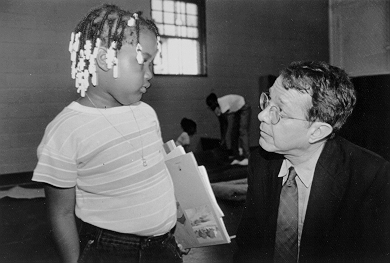
As I read through August's piece, I wrote down connections to Rodriguez, Collier, Meyer, Kozol and Deplit.
"Using the stuff of their out-of-school lives, students create oral texts, thus practicing a discourse that is valued in school (Cazden, 2001, p. 20). " This quote reminds me of the Rodriguez/Collier read. Instead of hiding their home life, it should be embraced. Students will gain self-worth and show pride in their background, while learning.


"Children whose discourse patterns match those of the dominant culture, for example, seem to enjoy longer turns and more meaningful interaction with the teacher (Cazden, 2001; Michaels, 1981)." This quote I connected to Delpits "power of culture". The students with the dominant culture or"power of culture" are more comfortable and willing to share. They are willing to express and confidently share their "culture" to others without feeling they would be judged.

"A child from a non-traditional family might have a somewhat different experience. A child with two moms, i.e., a child of lesbian parents, rarely, if ever, sees her family structure represented in the textbooks, storybooks, or artwork that are the everyday consumption of elementary school (Lindsay et al., 2006)....Her teacher might be inexperienced in critical-democratic pedagogy (Freire, 1970; Shor, 1992) or uncomfortable serving in that role on behalf of a family structure that many see as deviant. Could it be, then, that for a child with lesbian moms circle time (and school discourse in general) is confusing or, worse yet, scary?" This quote connected me to Meyer. She discusses how teachers are unprepared to discuss or teach issues that they are unfamiliar with. This is where teachers need to know their students and do whatever it takes to make all students feel comfortable and safe.
"Social interaction in general and classroom discourse in particular are implicated in academic achievement, even intellectual development (Vygotsky, 1986)." This quote make me think of Kozol's piece with the SFA program. The students had selected times to interact socially and had to follow the rules of the social interaction. Students need to interact to learn. Most of the social experiences students have at a young age "teach" them and help their minds grow. This quote from August also follows this: "Because human psychological functions develop historically and derive from social interaction (i.e., these functions are historically and culturally mediated), the appropriate unit of analysis is not the individual acting in isolation but rather object-oriented, practical activity that takes place in a cultural-historical context. "

I really liked reading the scenarios from August's study. It will now make me think of how I interact with my student and how I respond to their questions/interactions. I also will use interactions as teaching points to help students feel comfortable, creating a safe learning environment. I am excited to listen to August tomorrow!

Excellent job making all of the connections to the previous authors we have studied!....
ReplyDeleteFinal Paper material :)
Wow.... great job with your blog!! I like how you made so many connections to the other authors we have discussed in class!!
ReplyDeleteYou made some graet connections "Coach". This article and your connections really resignated with me. The quote "Children whose discourse patterns match those of the dominant culture, for example, seem to enjoy longer turns and more meaningful interaction with the teacher (Cazden, 2001; Michaels, 1981)." is completely TRUE. The dominant culture always seems to get more attention and acceptance. It definitely relates to the "power of culture". NICE JOB
ReplyDeleteI really liked how you used quotes to show the connections between Shor and the other authors we have read/discussed...seeing their actually words made the connections much clearer. Great job!
ReplyDelete